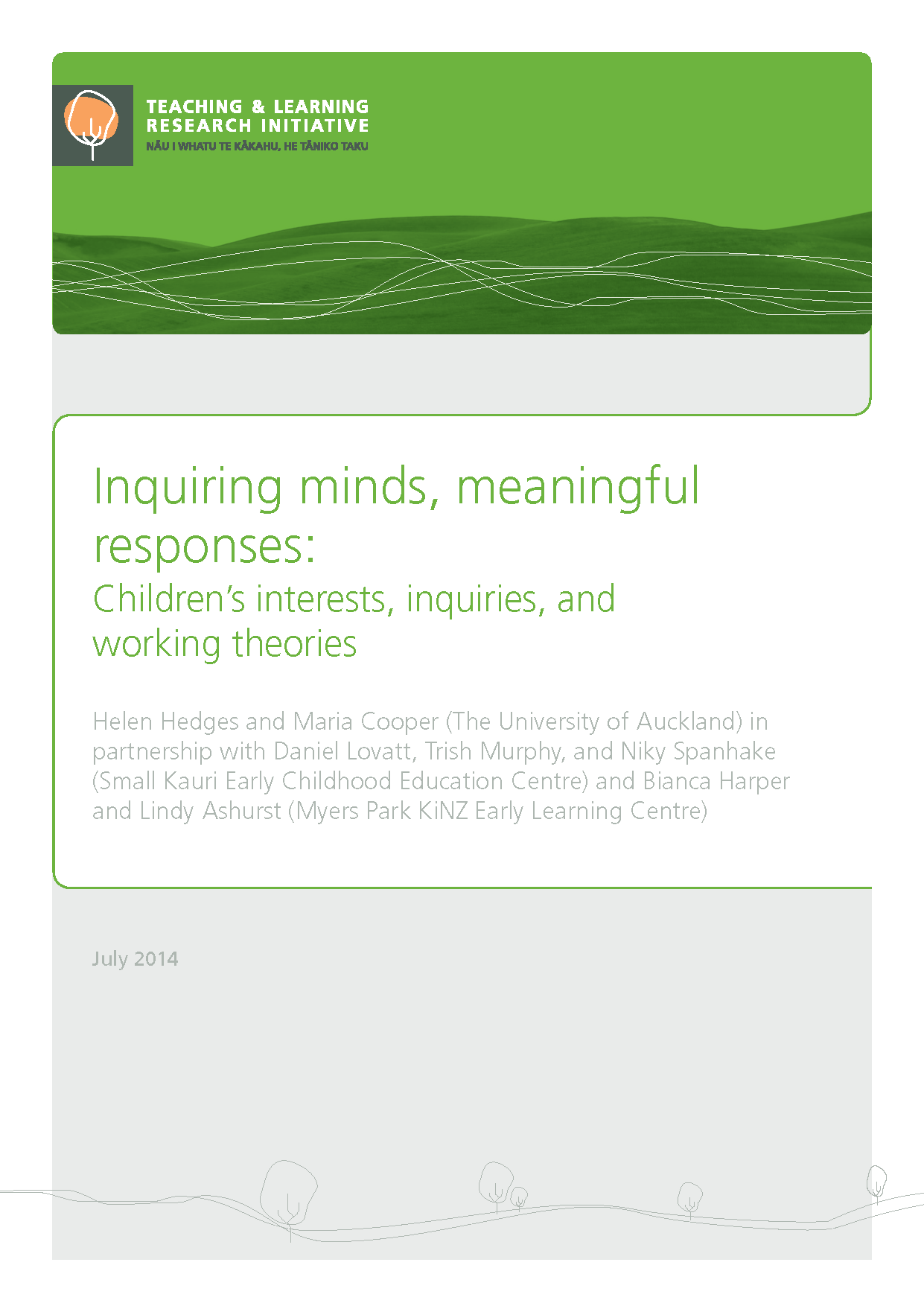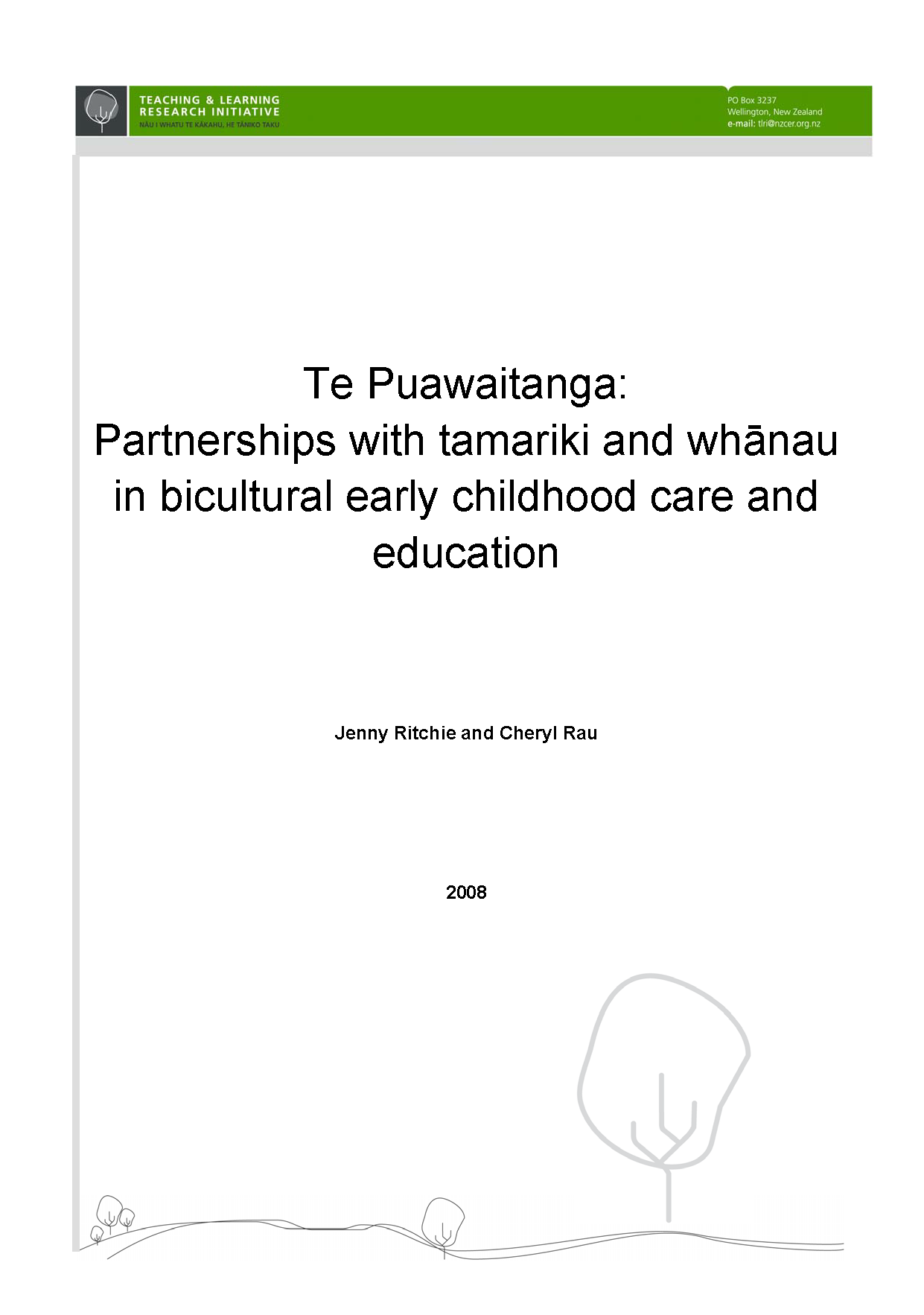
Inquiring minds, meaningful responses: Children’s interests, inquiries, and working theories
Introduction: Research rationale and aims In keeping with the spirit, aims, and principles of the Teaching and Learning research Initiative (TLRI) programme, the following whakataukī has guided our research project: Ma te mahi ka mohio, ma te mahi ka marama, ma te mahi ka matatau. Through practice comes knowledge, through knowledge comes understanding, through understanding comes expertise. Our project has been grounded in the realities and complexities of teaching practice, and the fundamental partnership between teachers and their families and communities. Many early childhood settings in Aotearoa New Zealand follow the advice of Te Whāriki (Ministry of Education, 1996) and use children’s interests as a source of curriculum decision making. Earlier


